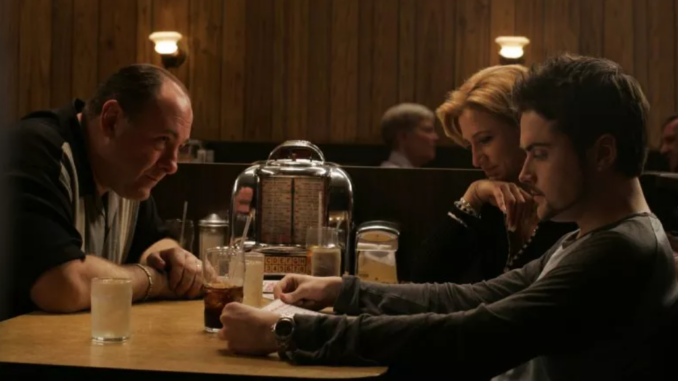
“Exploring the Legacy of David Chase: Tony Soprano and the Television Revolution” Ask any television critic or historian about the series that had the most profound impact on the television landscape, and they’ll all point to one series: The Sopranos. The HBO series, which debuted on January 10, 1999, is credited with elevating the dramatic television series. Simply put, it made the format cinematic.
The series about Tony Soprano, a brutal New Jersey mafia boss struggling with personal issues that lead him to seek therapy, introduced the world to the late actor James Gandolfini and made the show’s creator, David Chase, an author in his own right.
For eight years and six seasons, audiences have followed this unique mafia boss saga, capturing the public’s attention and raising our expectations of what television can be. Without The Sopranos, there would be no Mad Men, Breaking Bad or Succession.
And now, Oscar-winning documentarian Alex Gibney is turning his attention to the series’ legacy in Max’s new two-part documentary Wise Guy: David Chase and The Sopranos (September 7). “I’ve been watching it since the first season. I was hooked,” Gibney told Newsweek’s Parting Shot podcast. “It’s definitely the show for me. It’s dark, but it’s also funny. It’s about the corruption of American commercial culture.”
Here’s an edited and condensed version of the conversation. To listen to the full conversation, subscribe to the Parting Shot podcast on Apple Podcasts, Spotify or wherever you listen to podcasts.
Originally, I was just going to do the first and last. I wasn’t going to do any of the parts in between, because I thought I’d go into those. Those are the two parts that David directed. This is the last book in the series. It was a way to focus, because the one thing I wanted to avoid at all costs was a stone-throwing exercise. It’s like a metronome that takes you through little bits of the show, but there’s no deeper meaning. I’m interested in the creative process, and also, you think about the show now, and you think about how great it is, but think about it from the perspective of 1998. Think about it from the perspective of a blank sheet of paper. Let’s go into the show. What kind of actors should we have? All those decisions are really important and interesting, but when it comes to acting, you’re starting from scratch, right? Right. And also, a network starting from scratch, essentially and effectively handing its existence over to someone who had never done anything like this before.
There were elements about The Sopranos that made it innovative from a narrative perspective, in terms of the kind of characters involved, who was the protagonist, who was the villain. And then, cinematically, David also referenced his cinematic background and wanted to make movies instead of TV shows, which up until that point had mostly looked like s*** and were completely uninteresting. It was the whole process of building a writers room, editing stories, and all that. All of that came from the idea that you were going to make 26 shows a year and you were just going to make them continuously. And the most important thing was the script, and who cares how they were shot.
The Sopranos really turned that concept upside down. From the number of episodes to the script to the cinematography. I want to know, did you learn anything new about David’s creativity during the course of our conversation? Or something that surprised you?
I was surprised by how personal it was. What was so fascinating, and more evident in season two than season one, was the strange three-way relationship between Jim [James Gandolfini], David and Tony [Soprano], and it was solidified even though we were on the path of exploring that, it was solidified when we got the funeral scene. David meant the three of us, meaning him, Tony and Jim. Also, his determination to try to get it right. I don’t know about the college episode [and] how David reacted to the show’s note. [For Tony not to kill a character.] And David was like, ‘If he doesn’t kill that son of a bitch, we’re not real. We’re just making a farce. And then we’re making a farce, we’re not doing what I want to do.’ And to their credit, HBO was like, ‘Okay.’